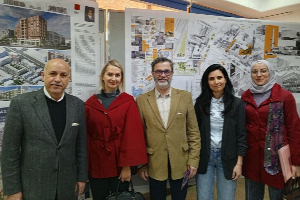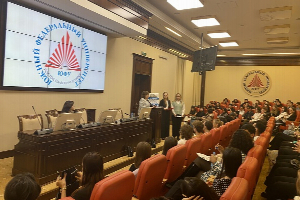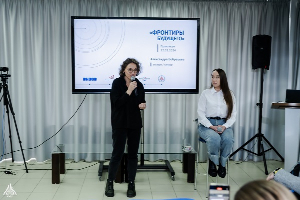
The application of extrapolation theory in the definition of large and small Lebesgue spaces opens up prospects for new directions in mathematics. It is expected that this research will become a starting point for the development of new theories and methods in this field, which will help solve complex problems with high accuracy and efficiency.
In mathematics, when solving real-world problems and building mathematical models, functions play a key role. Known to us since school days, they represent not only abstract concepts, but also the basis for describing physical processes and phenomena. So, today scientists use in their research a set of such functions, united by some feature, which in mathematics are called classes or spaces of functions. What is it for? Functions can describe both initial (initial) conditions, such as temperature, speed, or the position of an object at the initial moment, as well as the solution of the problem itself, characterizing a specific physical process depending on time or other parameters.
In everyday life, we are used to working with ordinary numbers, for example, the average temperature or the maximum. However, sometimes we need to be able to measure the global characteristics of objects (functions), which can vary in different parameters, for example, by time or location. Lebesgue spaces provide tools for working with such complex functions: instead of just looking at the values of a function at specific points, we can analyze them as a whole, taking into account their distribution, variations and other characteristics. This is especially important, for example, when analyzing physical processes that are described not at every moment of time, but by some global data.
Interestingly, all the functions that we built on graphs in school exist in the so–called Banach space - a normalized vector space completely defined by the norm. Depending on the field of application, there are different approaches to what laws of geometry work in this space: Euclidean geometry, Lobachevsky geometry, and so on. At the same time, all functions for which the degree is integrated exist in the Lebesgue space. However, working with functions in this space can be difficult because of its special mathematical laws, so mathematicians have been trying to simplify calculations in it for a long time.
Alexey Karapetyants, Director of the SFedU Regional Scientific and Educational Center, is working on this problem at the Southern Federal University.
The scientist also noted that the solution would be to expand the original space of functions so that after adding this feature, the resulting object would continue to remain in the original class of functions, that is, to be integrable. On the other hand, expansion means a deepening of the subsequent result, so it is necessary to provide an expansion that would be larger than the original one, but at the same time this expansion would be practically "elusive". Here, the so-called "infinitesimal analysis", or the analysis of "infinitesimals", comes into play, a certain philosophy of mathematics that has been familiar to mathematicians for many centuries, but in the modern world is interpreted as something new in applications and related fields of sciences.

Actually, this is how the concept of "Large" Lebesgue spaces appeared, which are larger than the classical Lebesgue spaces themselves, but this difference is elusive if you try to "measure" it. These function spaces originated in the works of Carlo Sbordone (Italy) and Tadeusz Ivanec (USA/Poland) in the early 90s of the last century. However, the prerequisites were obtained in the earlier works of Nikolai Karapetyants and Boris Rubin (RSU, now SFedU).
In a new paper, the results of which are published in the journal Mathematical Methods in the Applied Sciences, Alexey Karapetyants, in collaboration with Evgeny Berezhny, a mathematician from Yaroslavl, partner of the SFedU Mathematical Center, proposes a new model for constructing Large Lebesgue spaces by extrapolation, a well-known mathematical operation.
It is expected that this research will open up new horizons in the theory of large and small Lebesgue spaces, providing mathematicians with new tools for analyzing and solving complex problems in various fields of science and technology.
Short link to this page sfedu.ru/news/74976




